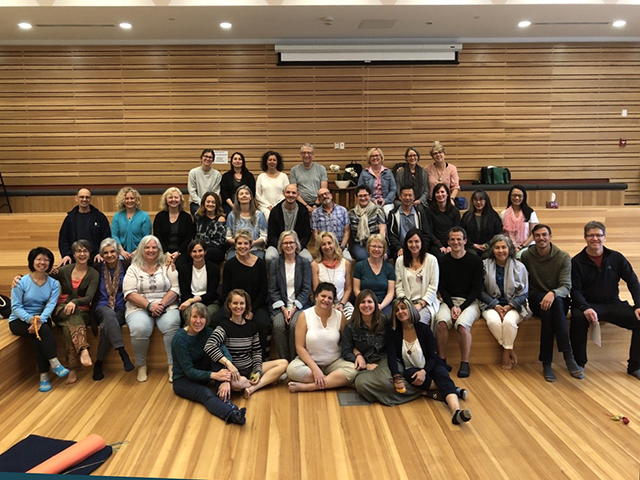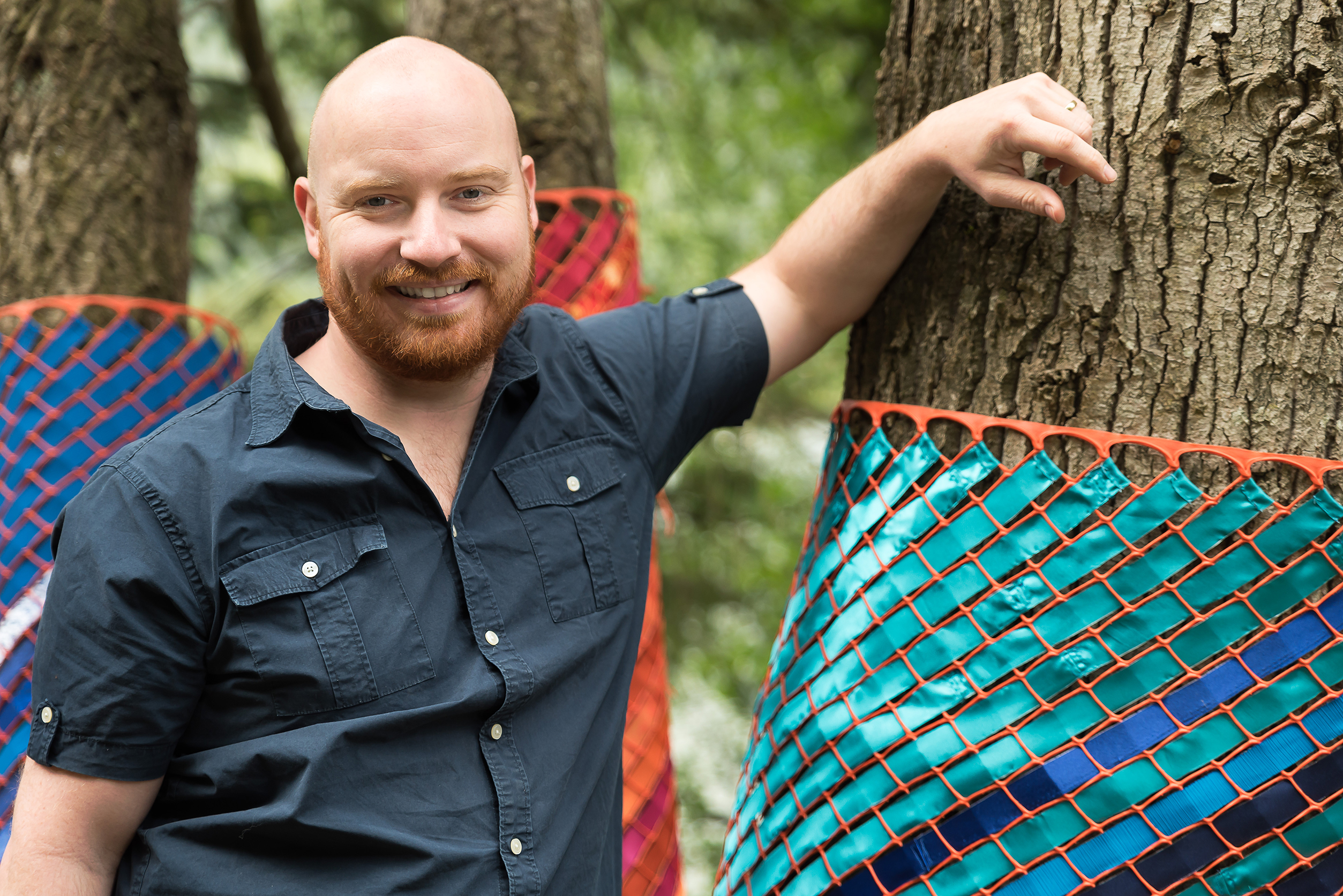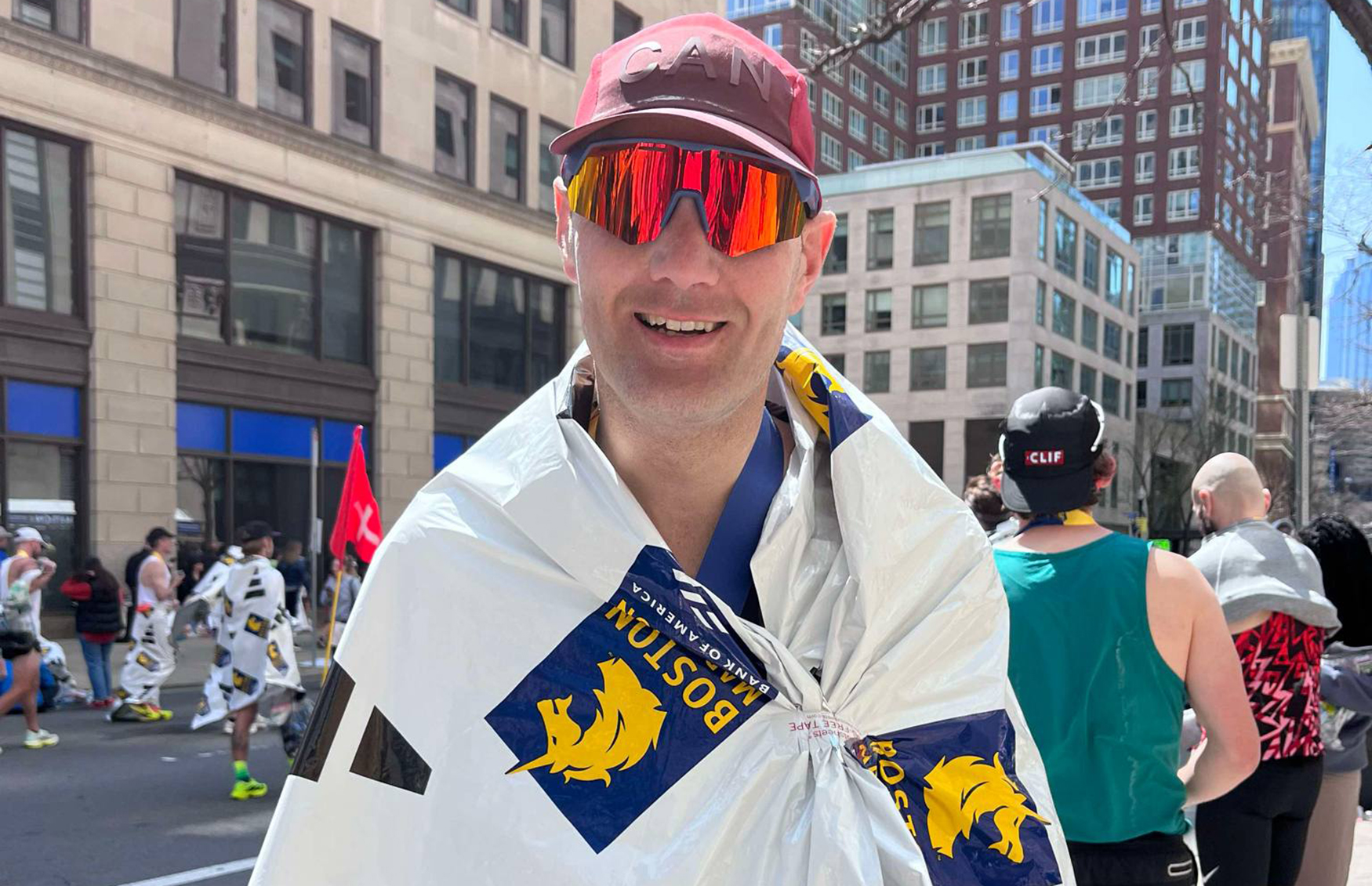Innovative mindfulness program model takes a trickle down approach to teaching
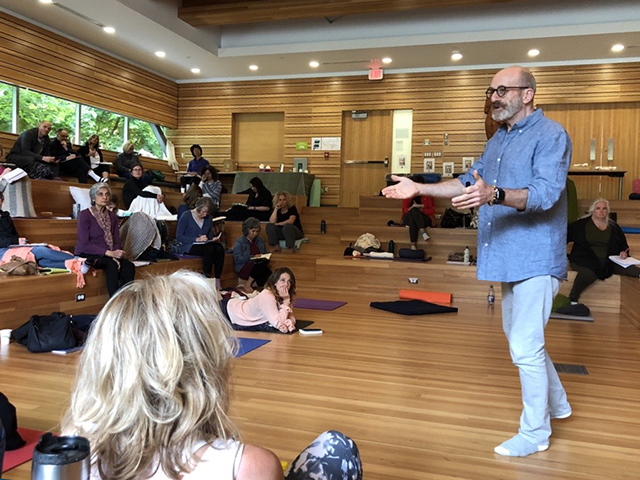
Pay it forward in the form of mindfulness. That’s the idea, at least around the Fraser Valley as of late. People of all ages are practising staying present. They take walks. They learn how to pause before reacting during conflict, focusing on their breath and hands. You see it in daycares, in high school classrooms, and in medical offices.
These are simple, but effective mindfulness techniques that are passed along from the UFV Mindfulness-Based Teaching and Learning (MBTL) program to working professionals, who then share them with others.
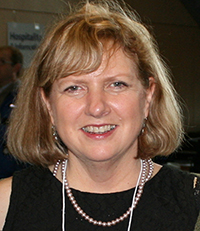
“We call it a trickle down mindfulness approach,” says Dr. Seonaigh MacPherson, a professor at the UFV Adult Education and coordinator of UFV’s Mindfulness-Based Teaching and Learning (MBTL) graduate certificate program. “We envisioned building a model where we educate and support the people already in positions to deliver mindfulness programming to those in need of the tools, whether it was young children or teens or adults, including those marginalized or at-risk.”
This unique program orientation led to a special pilot initiative this year to place MBTL students on field experiences in organizations to deliver mindfulness to frontline workers serving high-risk and marginalized populations across the Fraser Valley. Reimaging how mindfulness can be taught and how it can promote community — not just individual —well-being are the reasons why the landmark community outreach projects were backed by a UFV Strategic Initiative Fund (SIF) grant in 2019.
“Mindfulness is, most simply put, bringing attention to the present moment without judgement,” MacPherson says. “The goal is to make this inclusive and accessible.”
The grant allowed professionals like Kulwant Gill, academic advisor at UFV, to attend the MBTL program to obtain mindfulness leadership and teaching skills that enabled her to pass on to peers and students.
An MBTL alumna, she now serves as a mentor in the MBTL program.
“I am now a mentor bringing my own experience, but also looking at what the students are bringing and providing feedback and input for their own delivery when they are presenting this to the participants,” says Gill. She recently worked with two UFV students from the MBTL cohort who designed a pilot project and curriculum for teaching mindfulness to new peer wellness advisors at UFV to support, in turn, students in distress or immediate need of emotional care.
Jodie Dueck, an MBTL alumna and Grade 3 teacher in the Abbotsford School District, mentored two current MBTL students to deliver mindfulness to Grade 12 high school students for a special work-study initiative. These high school students then relayed mindfulness strategies to four-year-olds in local childcare centres.
“We know that we learn best when we teach,” says Dueck, noting this was a partnership between UFV, BC’s Ministry of Children and Family Development, the Chilliwack School District, and preschools in the area. “And so, we can see the train in how these adults are teaching the youth. The youth are learning things and are now going to teach the littles. It’s this beautiful flow of how we are integrating mindfulness across multiple age groups.”
Preschool age has been identified as a critical age group in emotional development.
“We know there is good research on the impact of mindfulness for children in helping with self-regulation, increased attention span and compassion practices,” Dueck adds.
Dueck and Gill’s projects are part of key directives identified in UFV’s five-year (2021-’26) Strategic Initiative Fund, which emphasizes community outreach and Indigenization. There are also three other SIF-funded sites across the eastern Fraser Valley focused on healthcare, homelessness, and Indigenous communities.
The Indigenous site was conducted on Stó:lō territory and led by UFV alumna Gracie Kelly of the Chilliwack Division of Family Practices. The purpose was to educate Indigenous leaders on adapted mindfulness practices that were customized to Indigenous traditions such as smudging and the medicine wheel.
“The Stó:lō site also involved even more orientation on community,” says MacPherson. “That’s a big issue for Indigenous adaptability because they tend to prefer to heal in community rather than individually.”
The MBTL certificate program is currently looking for new community partners and more mindfulness ambassadors. The next program will start in January 2023 with an October 1, 2022 deadline for applications. While MacPherson says that the program will continue to evolve, the pay-it-forward model of teaching and learning will remain constant.
She loves hearing success stories such as the one about the four-year-old in preschool who successfully combated the anxiety of an impending thunderstorm with a simple breathing practice involving lifting and lowering hands, taught to her by a high school student who was taught by a high school teacher from the MBTL program.
But the model is not always linear. Sometimes the recipients at the bottom can pay it forward as well.
“I once met a teacher in the Chilliwack School District who ended up doing a mindfulness course with us at UFV, but she said she was being taught by her children who had learned it in school,” MacPherson says. “So it’s not necessarily always a trickle-down effect. It could be trickle up, too.”


